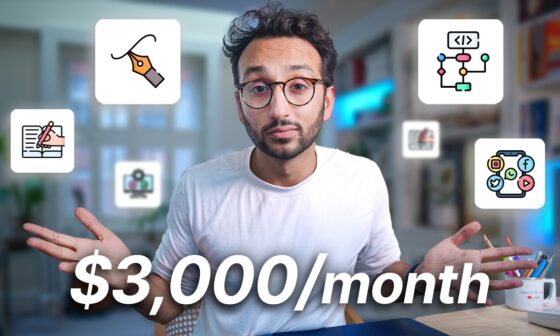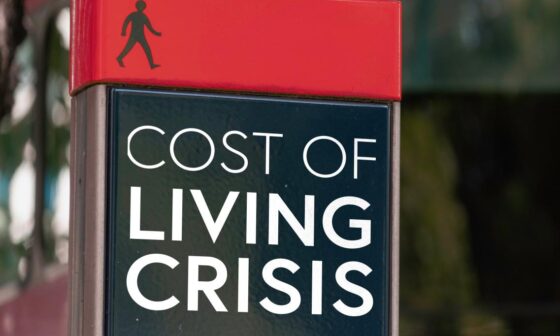Why You’re Always Broke — The Psychological Spending Habits Nobody Talks About
 7 Financial Mistakes Students Make in Their First Year And How to Avoid Them
7 Financial Mistakes Students Make in Their First Year And How to Avoid Them
You check your bank balance, then instantly regret the café latte you bought. Or maybe you smile when you see a “limited-time deal,” hit checkout, and later wonder how your account got so low. If that feels familiar, you’re not alone — and there’s a powerful emotional and psychological story behind it.
This isn’t just bad budgeting. It’s a pattern rooted in how our brains work: impulse, emotion, and instinct all tangled in our spending habits. Understanding these invisible forces is key to breaking the cycle and finally getting your finances under control.
Why You’re Always Broke: The Hidden Triggers That Make You Spend
Instant Gratification and Impulse Spending
One of the biggest culprits in overspending is our brain’s love for instant rewards. As Dr. Michael Kane, a psychiatrist, noted, “the desire for immediate satisfaction” drives many of our unnecessary purchases. (Nasdaq)
When something feels good right now, our impulse control often takes a back seat.
Emotional Coping Mechanism
Spending money is also a powerful emotional tool. People often shop to cope with stress, sadness, or boredom. This behavior is more than just a bad habit — for some, it’s a way to self-regulate when emotions feel overwhelming. (viraanhub)
When life gets tough, retail therapy gives us a quick emotional hit — but the cost adds up fast.
Fear of Missing Out (FOMO)
Marketers know just how to push the buttons: “Limited stock!” “Only today!” Those urgency tactics trigger a real fear in consumers — if you don’t buy now, you might miss out. That FOMO feeling makes us act fast, often without thinking. (Nasdaq)
It’s not just about wanting things — it’s about not wanting to feel left behind.
Emotional Detachment with Digital Payments (Spendception)
Digital payments are neat and easy, but they also weaken one of our strongest barriers to overspending: the “pain of paying.” Researchers call this phenomenon “spendception” — essentially, when you don’t physically feel the money leaving your wallet, you’re more likely to overspend. (MDPI)
That invisible swipe makes it easier to buy without thinking.
Self-Control Struggles and Psychological Needs
A study in the Journal of Financial Services Marketing found that when people’s psychological needs are frustrated for example, a need for social connection or autonomy — they tend to spend more impulsively. (SpringerLink)
In other words, spending can become a coping mechanism when our emotional needs are unmet.
More Hidden Psychological Forces Behind Overspending

Here are other subtle but powerful mental forces that push us to spend more:
- Bounded Rationality: Because our brain doesn’t process every decision deeply, we often take mental shortcuts — and that makes impulse spending more likely. (Wikipedia)
- Scarcity Mindset: When something feels rare or limited, we value it more, even if we don’t need it. This scarcity bias often fuels impulsive buys. (Wikipedia)
- Cognitive Justification: We mentally justify “wants” as “needs” to ease guilt — like calling a new jacket a “necessity.” Research shows this semantic reclassification is common. (SpringerLink)
- Compulsive Buying Disorder: For some, shopping is not just a habit — it’s an impulse control issue, with deep emotional roots. (Wikipedia)
How These Habits Leave You Broke — A Side-By-Side Comparison
| Psychological Habit | How It Impacts Your Money | Real-World Example |
|---|---|---|
| Instant Gratification | Overspending because you want quick rewards | Buying a gadget instead of saving |
| Emotional Spending | Using spending to feel better | Retail therapy after a bad day |
| FOMO / Scarcity | Buying because you fear missing out | Snapping up a “limited edition” offer |
| Spendception | Using digital payments reduces spending pain | Frequent swiping without guilt |
| Self-Control Failure | Impulse triggers override long-term goals | Ignoring your budget when sad or bored |
| Justified Wants | Re-labeling wants as needs | Convincing yourself you need the latest fashion |
Why No One Talks About These Habits… But They Hurt Your Wallet
These spending impulses are deeply embedded in how we think — and most advice is surface level (“just make a budget”). The real challenge lies in resisting emotional triggers, not just tracking expenses.
Behavioral economists and psychologists agree: without addressing the mental root of spending, any financial plan will likely fail. The budgeting tools help, but they don’t fix the part of your brain that craves, defends, or disconnects when it comes to money.

How to Break the Cycle and Start Controlling Your Money
The good news? You can overcome these psychological traps. Here are practical, proven strategies:
- Create a Pause Ritual
When an impulse strikes, pause. Give yourself 24 hours before committing. This simple step reduces emotional spending dramatically. - Use a Visible Payment Method
Try using cash or a prepaid card. Feeling the physical money leave your wallet makes the spending real again. - Automate Savings
Give your future self a head start. Set up automatic transfers to savings so the money’s gone before you feel tempted. - Build Emotional Awareness
If you notice anxiety or sadness creeping in, journal your feelings instead of turning to shopping. - Limit Exposure to Triggers
Unsubscribe from marketing emails, remove shopping apps, and block impulse purchases. - Get Social Support
Talk to someone you trust — a friend, therapist, or coach — about why spending is hard for you. Shared awareness helps.
When You Might Need Professional Help
If spending feels uncontrollable, it may be more than a bad habit. Signs of a deeper issue include:
- Continuous debt even after following budgets
- Strong guilt, shame, or regret around purchases
- Using shopping to manage anxiety, depression, or stress
In such cases, talking to a mental health or financial professional can offer guidance, coping tools, and long-term strategies.
Final Thoughts: You’re Not Broken, You’re Wired
It’s tempting to think “I just have no willpower,” but the reality is more complicated — and more hopeful. The psychological spending habits that keep you broke aren’t a moral failing; they’re part of the human condition.
But now that you see how they work — the emotional pulls, the cognitive slip-ups, the digital detachment — you can fight them. With some awareness, strategy, and self-kindness, you can reclaim control over your money, your emotions, and your future.
If you found this valuable, share it with a friend who also feels stuck in the paycheck-to-paycheck cycle. Understanding why we spend is the first step to stopping overspending.
Start today pick one of the strategies above, try it this week, and reflect on how your spending feels differently.






